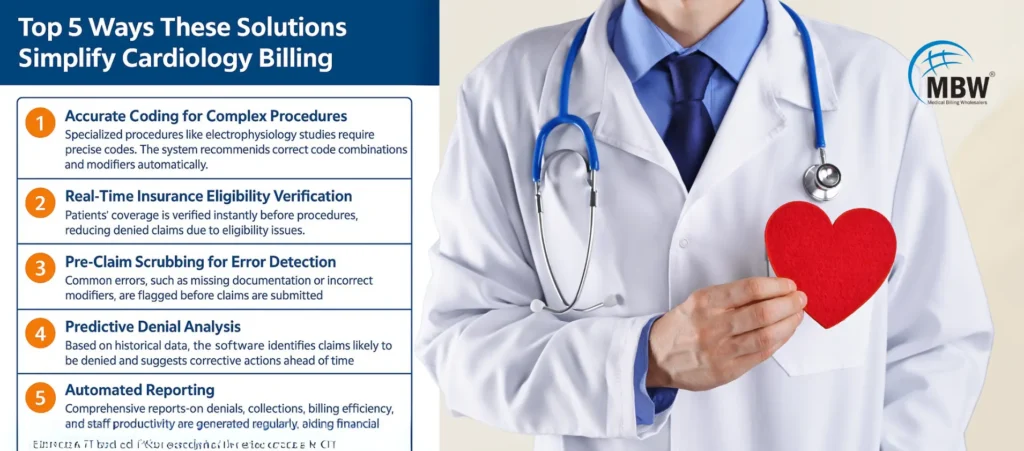Billing in cardiology has long been complex. Due to the variety of cardiac procedures, strict coding rules, and specific payer requirements, errors occur frequently. These errors often result in claim denials and payment delays. Recently, many cardiology practices have started adopting Advanced Cardiology Billing Solutions designed specifically to meet their unique needs.
These solutions differ significantly from general billing tools. They are developed to understand the intricacies of cardiac services, aiming to simplify, accelerate, and improve billing accuracy.
“Billing is not just about payments; it’s about understanding the story behind every code and claim.” — Healthcare Revenue Expert
What Are Advanced Cardiology Billing Solutions?
Advanced Cardiology Billing Solutions are specialized tools tailored for cardiology practices. They support a wide array of cardiac procedures, including:
Stress tests
Echocardiograms
Cardiac catheterizations
Holter monitor analysis
Pacemaker follow-ups
Unlike generic billing software, these solutions include cardiology-specific CPT codes, modifiers, and regularly updated payer rules. This helps ensure claims are coded correctly from the start, reducing errors, denials, and delays.
According to a 2023 Medical Group Management Association (MGMA) report, cardiology ranks among the top specialties with the highest claim denial rates, mainly due to coding and billing complexities.
Benefits of Advanced Cardiology Billing Solutions
Practices using advanced cardiology billing tools have reported several key benefits:
Faster reimbursements: Reduced errors lead to quicker claim approvals.
Improved compliance: Systems update automatically with ICD-10 and CPT changes.
Fewer denials: Billing mistakes are caught before submission.
Reduced staff workload: Automation limits manual data entry and corrections.
Better cash flow: Payments become more consistent and predictable.
A 2023 Healthcare Financial Management Association (HFMA) study showed a 50% drop in denials and a 30% faster reimbursement rate in practices adopting specialty billing tools.
Top Features of Advanced Cardiology Billing Systems
Advanced cardiology billing solutions offer unique features missing in general platforms:
Cardiology-Specific Coding Support: Thousands of cardiology-related CPT and ICD-10 codes are built-in to minimize errors. For interventional cardiology procedures, refer to the SCAI guide to interventional cardiology billing and reimbursement for detailed documentation and billing practices.
Real-Time Payer Updates: Automatic synchronization with Medicare, Medicaid, and commercial payer rule changes.
Custom Dashboards: Live metrics like denial reasons and payer turnaround times tailored for cardiology billing teams.
Automated Claim Scrubbing: Pre-submission checks detect missing information or coding mistakes.
Seamless EHR Integration: Reduces duplicate entries and streamlines data flow from electronic health records.
To ensure clean claims and error-free submissions, most practices now follow cardiology coding guidelines and best practices that are built into these tools.
Top 5 Ways These Solutions Simplify Cardiology Billing
Accurate Coding for Complex Procedures
Specialized procedures like electrophysiology studies require precise codes. The system recommends correct code combinations and modifiers automatically.Real-Time Insurance Eligibility Verification
Patients’ coverage is verified instantly before procedures, reducing denied claims due to eligibility issues.Pre-Claim Scrubbing for Error Detection
Common errors, such as missing documentation or incorrect modifiers, are flagged before claims are submitted.Predictive Denial Analysis
Based on historical data, the software identifies claims likely to be denied and suggests corrective actions ahead of time.Automated Reporting
Comprehensive reports on denials, collections, billing efficiency, and staff productivity are generated regularly, aiding financial management.

Old Way of Billing vs. Advanced Cardiology Billing Solutions
| Old Way of Billing | Advanced Cardiology Billing Solutions |
|---|---|
| Use of generic codes | Cardiology-specific CPT & ICD-10 coding support |
| Manual payer rule updates | Auto-updated, real-time payer rule databases |
| Basic, generic dashboards | Custom cardiology analytics and performance metrics |
| Manual data entry from EHR | Full EHR integration enabling seamless data flow |
| Claims fixed after denial | Claims scrubbed and corrected before submission |
Becker’s Healthcare reports that outdated billing systems have 2.5 times higher claim rework rates compared to advanced specialty billing platforms.
Industry Insights and Data
Advanced cardiology billing is no longer optional—it is essential. The industry data clearly supports this shift:
A 50% reduction in denials was observed within 90 days of adopting specialty billing systems (HFMA, 2023).
Reimbursements accelerated by 30% in the first six months after implementation (Advisory Board, 2023).
Practices using automated billing saw 20% higher net collections than those relying on manual or generic tools.
Over 70% of large cardiology groups now view specality Cardiology billing Services as a competitive advantage
Impact of Advanced Cardiology Billing Solutions on Key Metrics
| Metric | Before Implementation | After Implementation | Improvement (%) |
|---|---|---|---|
| Claim Denial Rate | 18% | 7% | 61% |
| Days in Accounts Receivable | 45 days | 25 days | 44% |
| Billing Staff Time on Claims | 30 hours/week | 14 hours/week | 53% |
| First-Pass Acceptance Rate | 68% | 94% | 38% |
Conclusion
Cardiology billing can be complicated, but it need not be a burden. With Advanced Cardiology Billing Solutions, practices gain tools tailored to their specialty’s complexity. These platforms reduce denials, accelerate reimbursements, decrease staff workload, and improve revenue collections.
Staying aligned with the ,so must billing. By adopting specialized systems, cardiology clinics can focus more on patient care and less on administrative headaches.
To learn how Medical Billing Wholesalers can help your cardiology practice streamline billing and increase revenue, connect with our experts today.
Frequently Asked Questions (FAQs)
1. Why are advanced billing tools important for cardiology?
Cardiology has many complex, high-risk procedures. Specialized tools reduce coding errors, denials, and revenue loss.
2. Can these systems reduce claim rework?
Yes. Claims are scrubbed before submission, lowering rework and speeding payment cycles.
3. Are advanced billing systems difficult to integrate with existing software?
No. Most systems integrate smoothly with popular EHR and practice management platforms.
4. How soon can improvements be seen after implementation?
Many practices see better denial rates and faster payments within 60 to 90 days in cardiology billing services.
5. Will this solution support practice growth?
Yes. Improved cash flow, fewer delays, and reduced staff time enable sustainable growth.
